Gilman-DAAD Germany Scholarships reach new target groups at US universities
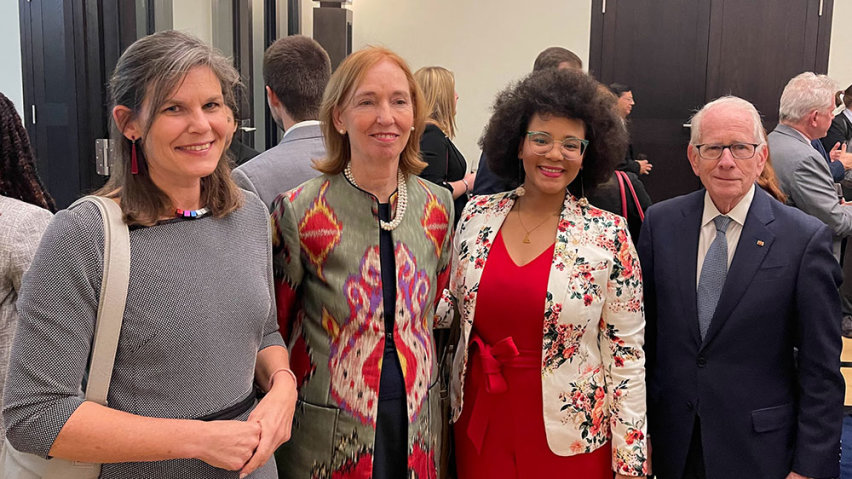 Benedikt Brisch
Benedikt Brisch
DAAD vice president Dr Muriel Helbig, German Ambassador to the U.S. Dr Emily Haber, Gilman alumna Dr Jamesa Stokes and Institute of International Education (IIE) CEO Dr Allan Goodman (from left) in the United States, at the signing of the Memorandum of Understanding for the Gilman Program.
The DAAD is taking a new approach to student funding in the USA: As of this year, it is a partner in the Benjamin A. Gilman International Scholarship Program. By sponsoring 40 undergraduate students from the US each year, the DAAD is strengthening the participation of previously less represented social groups in its international exchange programs.
Those in the USA who cannot afford to study abroad through their own financial means have the opportunity to do so by applying for a Gilman Scholarship from the U.S. Department of State. In the USA, only Pell Grant recipients are eligible, i.e. bachelor students from low-income households, many of whom belong to ethnic minorities or are the first in their families to pursue an academic career. The Gilman Program is very popular in the US: Since 2001, more than 34,000 students have been sponsored, a small number of whom have also gone on to study in Europe. The DAAD now wants to significantly increase this figure for Germany: together with the U.S. Department of State and the U.S. exchange organisation Institute of International Education (IIE), it has created a new scholarship program: the Gilman-DAAD Germany Scholarships. This means that up to 40 scholarships worth a maximum of 5,000 US dollars will be awarded each year to Bachelor students in the US who wish to study in Germany. Financial support comes from the Transatlantic Programme of the Federal Republic of Germany from funds of the European Recovery Program (ERP) of the Federal Ministry of Economics and Climate Protection (BMWK). Scholarship recipients can take summer or winter courses in Germany, participate in selected study abroad programs, study for one or two semesters or do internships in companies.
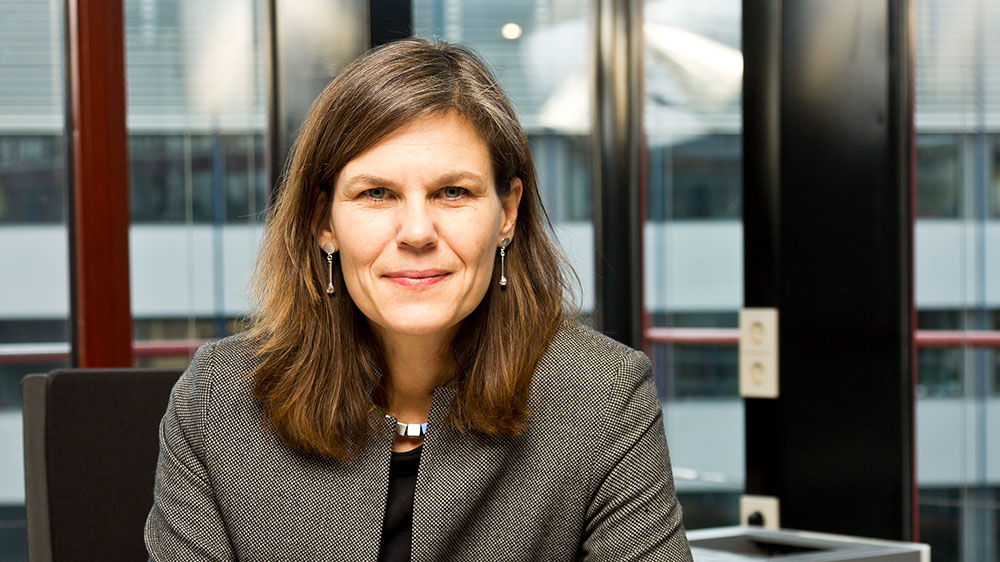
Eric Lichtenscheidt
DAAD Vice President Dr Muriel Helbig: “Diversity as a door opener.”
Fair access to higher education
The new Gilman-DAAD Germany Scholarships give clear indication that diversity is an important topic in Germany as well, and that it is not just something that is written in strategies and declarations of intent. American students from underprivileged backgrounds can apply to study in Germany and are welcome at German universities,” says DAAD Vice President Dr Muriel Helbig. She was in the United States at the end of November for the signing of a political declaration of intent between high-ranking representatives of the USA and Germany with the aim of intensifying the transatlantic exchange of young students through the Gilman Program. “In our discussions with universities, science institutions and partners in the USA, it became clear: Diversity is a door opener,” she said. In the US, equal access to higher education has been the subject of intense debate for some time, and new approaches are being developed. “This is why there has been so much interest in the new scholarship from Germany, which invites people to go to Germany for a period of study or practical training.”
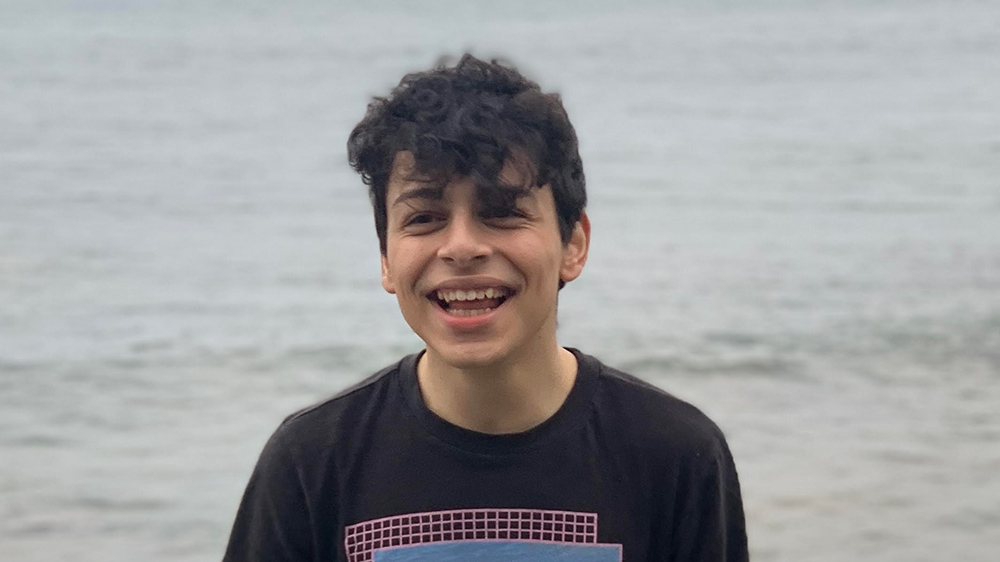
Privat
Luis Rodriguez from the USA studies at the TU Darmstadt and draws positive conclusions.
One of these students is Luis Rodriguez from the University of Rhode Island. He left the USA for the first time in his life and will stay at TU Darmstadt until the end of September 2023, where he studies engineering and takes German classes. “So far it's been fantastic and I’ve been really enjoying it,” he states, summing up his initial experience. Luis Rodriguez is also working on a research project on the side and will start an internship at Siemens Healthineers in the area of computer tomography after the winter semester. He thought carefully about his choice of destination: “Germany has a very good reputation for engineering. I believe that the experience I gain here will improve my problem-solving skills and my area of expertise,” he says. It is also important to gain different perspectives and experience other cultures.
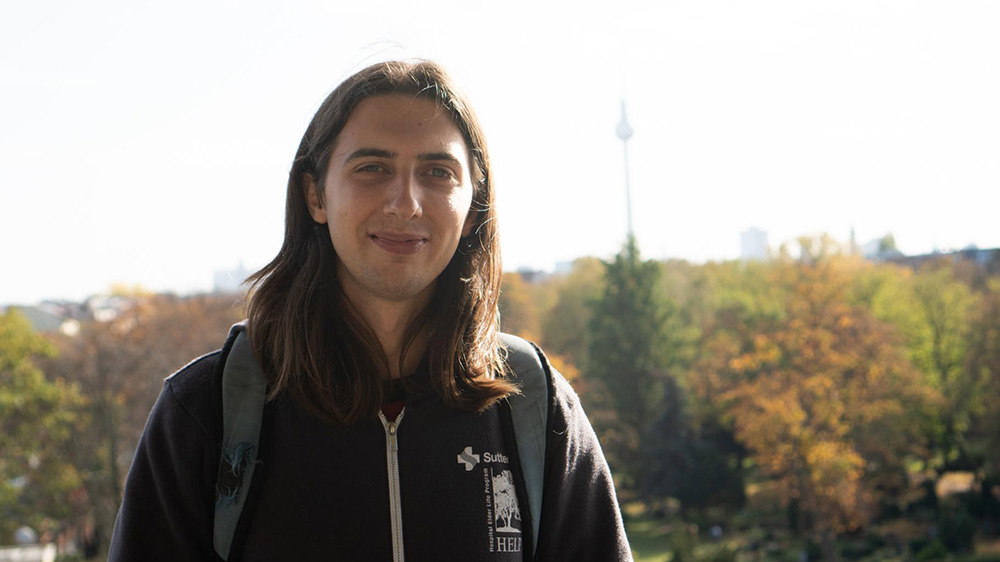
Privat
From San Francisco to Fulda: US student Paolo Privitelli.
Studies and internship in Germany
Paolo Privitelli, a student at San Francisco State University, has chosen Fulda University of Applied Sciences. The 27-year-old has been studying social work at the university in Hesse since the beginning of September. The scholarship was ideal for him because it allowed him to combine both his studies and an internship that he had to complete for his home university. The University of Applied Sciences Fulda meets the requirements for this, where he attends English-language courses at the Department of Social Work, for example on intercultural skills in social work or on the topic of democracy and participation in EU politics. At the same time, he does an internship at a youth centre and works there with children and young people, most of whom have a migration background. “It is important for the kids that I speak English with them as a native speaker. In addition, my German skills are put to a good test here, I learn a lot linguistically,” he says. He has not regretted taking the step to go abroad: “The hospitality has been great,” Privitelli says. Without the Gilman DAAD scholarship, he probably would not have been able to afford going abroad. “It would have been very difficult for me to finance my study abroad,” he explains.
Harrison Quinn from Bucknell University also emphasises the benefits of the scholarship. This summer, he spent a few months at the University of Trier, where he took courses on German literature and the history of the German film industry, as well as German language classes. “The Gilman DAAD scholarship helped me finance my first trip outside the US and my studies there. Given the busy curriculum and my limited financial means, I actually assumed I wouldn't be able to go abroad before my first degree,” says Quinn. He never thought he would study in Germany and do an internship at the Rheinland-Pfalz Supervisory and Service Directorate.
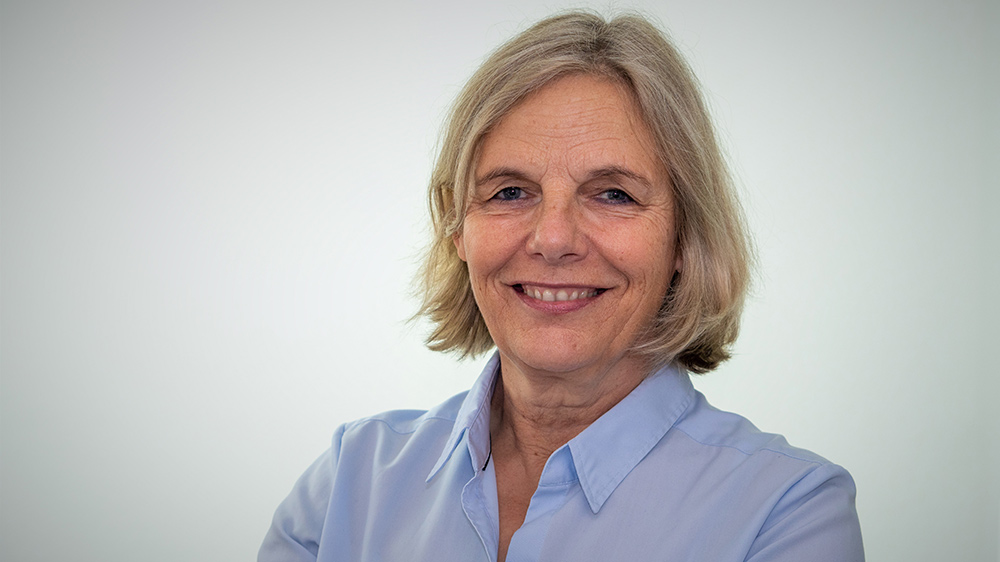
Thomas Pankau/DAAD
Satisfied with the start of the program: Gabriele Knieps, Head of Department “Scholarship Programs North America” at the DAAD.
Particularly interesting for universities of applied sciences
Gabriele Knieps, Head of the Department “Scholarship Programs North America” at the DAAD, is completely delighted with the start of the new program. “For us, the program is new territory because it allows us to reach new target groups at US universities,” she says. The Gilman-DAAD Germany Scholarships are particularly interesting for universities of applied sciences. “US students are very interested in application-oriented studies, which means that this could provide many universities of applied sciences with good starting points for contacts with US universities,” says Knieps. Contacts that may later develop into longer-term university collaborations.
The example of Gilman alumna Dr Jamesa Stokes shows the momentum that the Gilman-DAAD scholarship can have on a career. The physics student from Auburn University in Alabama joined Reutlingen University a few years ago for a semester, studying textile technology and management, and made contact with the German Aerospace Center (DLR). Through DLR, she succeeded in launching projects in material research with NASA, the US Federal Agency for Space and Flight Science. She now works there as an engineer and develops space suits – a career path that could serve as a model for other Gilman scholarship recipients.
Benjamin Haerdle (15 Dezember 2022)